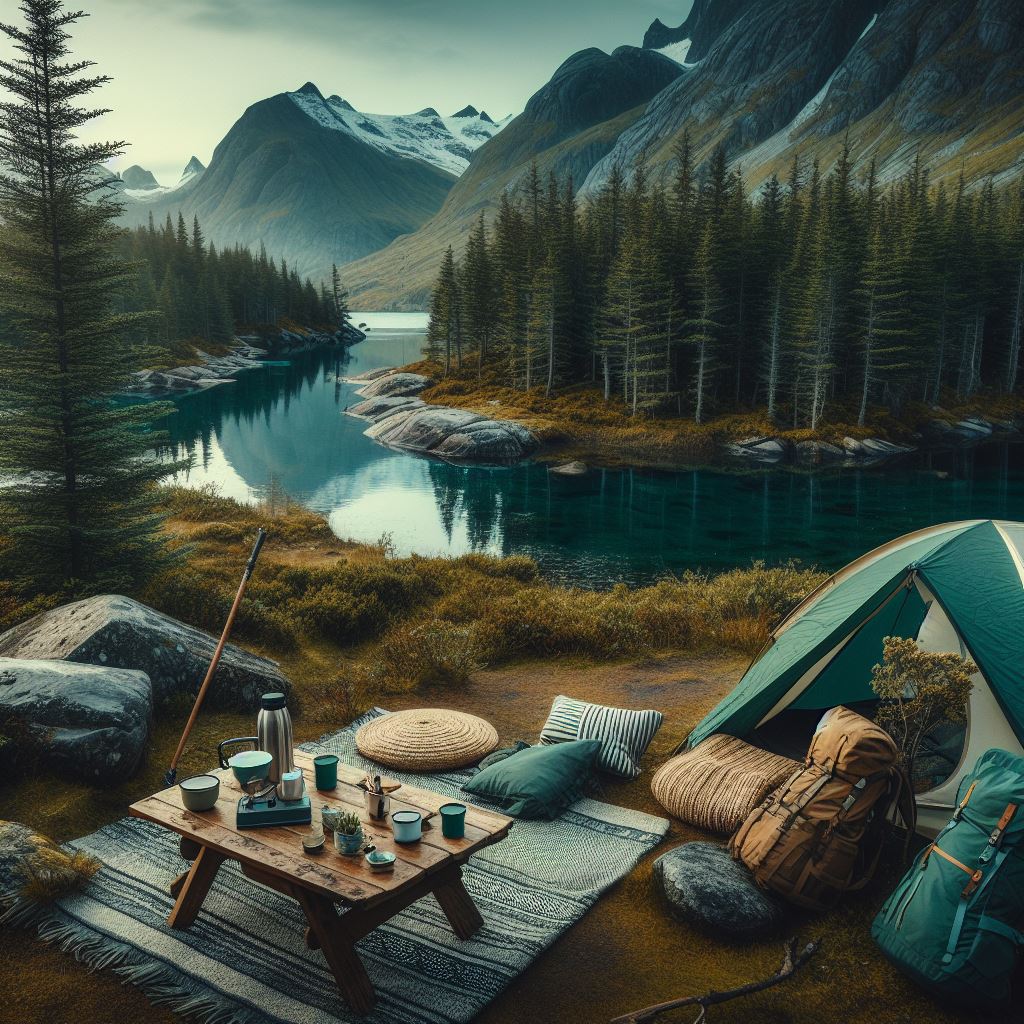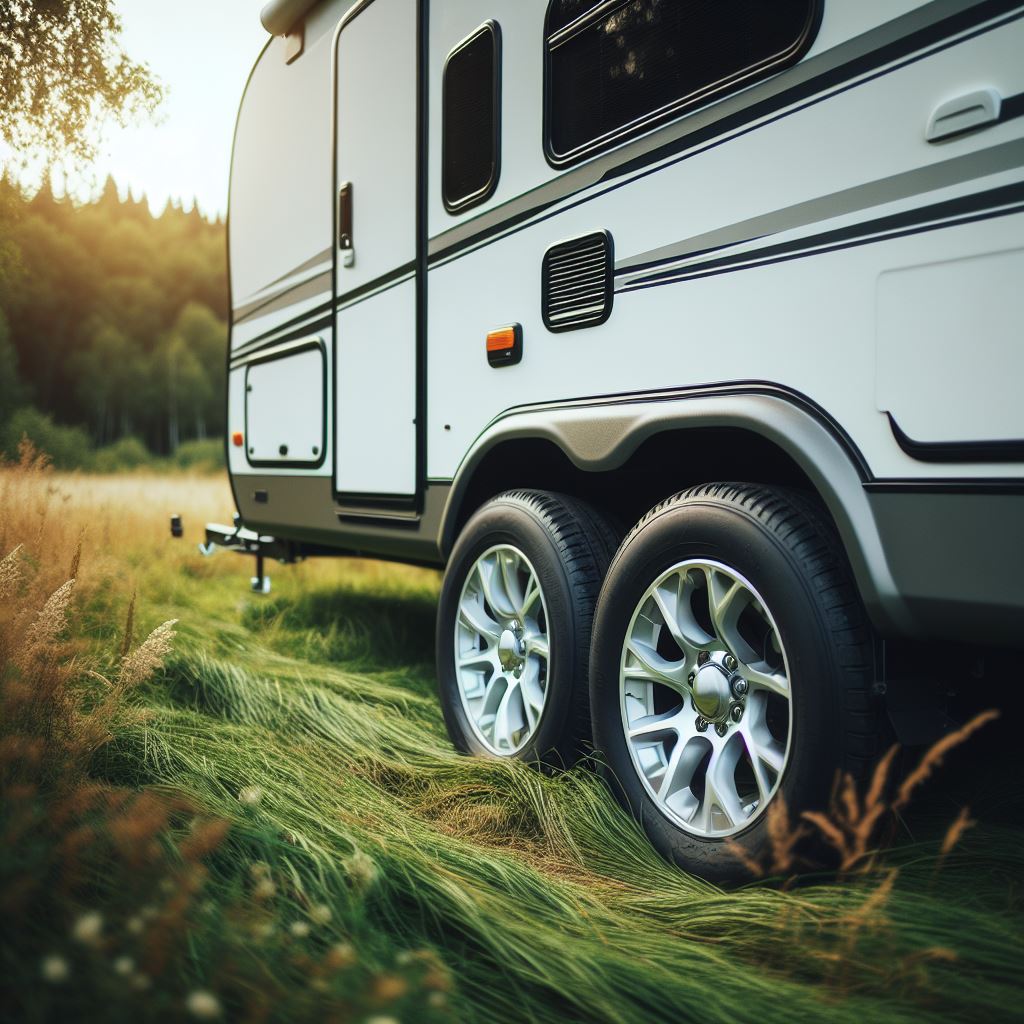Welcome to the green side of the great outdoors! Eco-friendly camping is like taking a gentle stroll through nature, where we leave nothing behind but footprints and take nothing but pictures. In this comprehensive guide, we’ll explore how to embrace the wilderness without leaving a mark, ensuring that our adventures contribute to preserving the beauty we seek. Let’s embark on a journey that’s not only about reconnecting with nature but also about doing it responsibly.
1. Introduction to Eco-Friendly Camping
Eco-friendly camping is more than a trend; it’s a movement. It’s about making small, conscious decisions that collectively make a big impact. Think of it as camping with a green heart. Here, every action, from the gear we choose to the sites we set up, aligns with the ethos of sustainability.
2. Choosing the Right Gear: Packing with Purpose
Before we even step foot outside, our adventure begins with packing. Opt for durable, eco-friendly gear that can withstand the test of time.
- Biodegradable soaps and toiletries ensure we’re not polluting water sources.
- Solar chargers keep us connected without draining the planet’s resources.
- Eco-conscious apparel made from recycled materials outfits us for the journey ahead.
3. The Ethical Camper’s Kitchen: Sustainable Eating Outdoors
Our bellies might rumble, but our impact doesn’t have to roar. Sustainable eating outdoors is easier than you think:
- Pack in, pack out: Carry reusable containers and cutlery.
- Local and seasonal food: Support local communities and reduce carbon footprints.
- Cooking with care: Use eco-friendly stoves and minimize firewood consumption.
4. Leave No Trace: The Golden Rule of Eco-Camping
This principle is the compass that guides our adventure. From disposing of waste properly to respecting wildlife and their habitats, it’s about ensuring our presence is invisible.
5. Eco-Friendly Transportation to Your Camping Destination
Consider how you get there as part of the adventure. Carpooling, using public transportation, or choosing destinations closer to home can significantly reduce your carbon footprint.
6. Setting Up Camp: Harmony with Nature
Find established campsites or areas with minimal impact. Use natural light, pitch tents on durable surfaces, and avoid altering the site. It’s like being a ghost camper; enjoy the site without making a lasting impression.
7. Water Conservation: Every Drop Counts
Water is a precious resource, especially in the wild. Collect and use water sparingly, avoid soaps and detergents in natural water sources, and ensure all water used is clean before disposal.
8. Minimizing Waste: Zero Trash Philosophy
Our goal is to leave the campsite cleaner than we found it. This means meticulous waste management, using biodegradable products, and adhering strictly to recycling principles.
9. Responsible Wildlife Interactions
Admire from a distance. Feeding or disturbing wildlife disrupts their natural behaviors and diet. Our role is to observe, not interfere.
10. Eco-Friendly Activities: Fun Without Footprints
Choose activities that don’t harm the environment. Hiking, bird watching, and stargazing are perfect ways to immerse in nature sustainably.
11. Community Engagement: Leave a Positive Impact
Engage with local communities. Whether it’s volunteering for conservation efforts or supporting local businesses, it’s about making our visit beneficial for all.
12. Eco-Friendly Camping Gear: Brands That Care
Highlighting brands committed to sustainability can guide our gear choices. Look for certifications and eco-friendly practices that align with our values.
13. The Art of Eco-Camping: Tips and Tricks
- Use a refillable water bottle.
- Choose LED lights for energy-efficient illumination.
- Embrace the minimalist camping ethos—less is more.
14. The Future of Camping: Sustainability on the Horizon
As we look forward, eco-friendly camping will become not just an option but a necessity. It’s about safeguarding the places we love for future generations.
15. Conclusion: The Eco-Camper’s Creed
As we wrap up our journey through the ins and outs of eco-friendly camping, it’s clear that this is more than just a way to camp—it’s a creed to live by when stepping into the great outdoors. By choosing to camp in an eco-friendly manner, we are not only committing to the preservation of our planet but also to a lifestyle that respects and cherishes the natural world in all its glory.
Embracing a Mindful Adventure
Eco-camping teaches us to be mindful of our surroundings, to tread lightly, and to think deeply about the impact of our actions. It’s about finding joy in the simplicity of nature, learning to appreciate the small details, and understanding the intricate balance of ecosystems. This mindful approach extends beyond the campsite, influencing our daily lives and choices, fostering a deeper connection with the environment.
A Collective Effort for a Sustainable Future
The beauty of eco-friendly camping lies in its collective impact. Each individual’s effort to minimize their footprint contributes to a larger movement towards sustainability. It’s a powerful reminder that our collective actions can lead to significant environmental change. By sharing our knowledge and practices with fellow campers and encouraging others to adopt eco-friendly habits, we amplify the positive impact on our planet.
The Path Ahead: Continuous Learning and Improvement
The journey towards becoming a seasoned eco-camper is ongoing. There is always more to learn, from innovative sustainable technologies to ancient wilderness skills that minimize our reliance on modern conveniences. Staying informed, open to change, and adaptable are key traits of the eco-camper. As we continue to explore the great outdoors, let’s commit to being students of nature, always seeking ways to improve our practices and reduce our environmental impact.
The Eco-Camper’s Pledge
As eco-campers, we pledge to:
- Respect and Protect: Treat all natural spaces with the utmost respect, actively protecting wildlife and their habitats.
- Leave No Trace: Strive to leave every place better than we found it, ensuring our adventures are sustainable for years to come.
- Share and Educate: Share our knowledge and experiences with the community, inspiring others to join the eco-friendly camping movement.
- Embrace Simplicity: Find joy in the simplicity that nature offers, reducing our reliance on material possessions.
- Continuously Improve: Remain committed to learning and adopting more sustainable practices throughout our camping adventures.
In Closing
Eco-friendly camping is a beautiful, rewarding way to experience the world around us. It allows us to disconnect from the hustle and bustle of daily life and reconnect with nature in a meaningful, sustainable way. As we pack up our eco-friendly gear and leave the campsite, let’s carry the principles of eco-camping with us, applying them in every aspect of our lives. Together, we can ensure that the great outdoors remains vibrant and thriving for future generations to explore and cherish.
By adopting the eco-camper’s creed, we don’t just enjoy nature; we become active participants in its preservation, weaving love and respect for the environment into the fabric of our adventures. Let’s continue to explore, learn, and grow as guardians of the planet, one eco-friendly camping trip at a time.
FAQs
1. How can I make my camping trip more eco-friendly? Start with sustainable gear, practice Leave No Trace principles, and choose eco-friendly activities.
2. What is the most important eco-friendly camping practice? Leave No Trace is fundamental. It encompasses everything from waste management to respecting wildlife.
3. Can eco-friendly camping gear be affordable? Yes! Many brands offer durable, eco-conscious products at various price points. It’s also cost-effective in the long run.
4. How does eco-friendly camping benefit the environment? It minimizes pollution, conserves resources, and supports the preservation of natural habitats.
5. Where can I find eco-friendly camping gear? Look for brands with a strong commitment to sustainability, as evidenced by eco-certifications and transparent practices.




